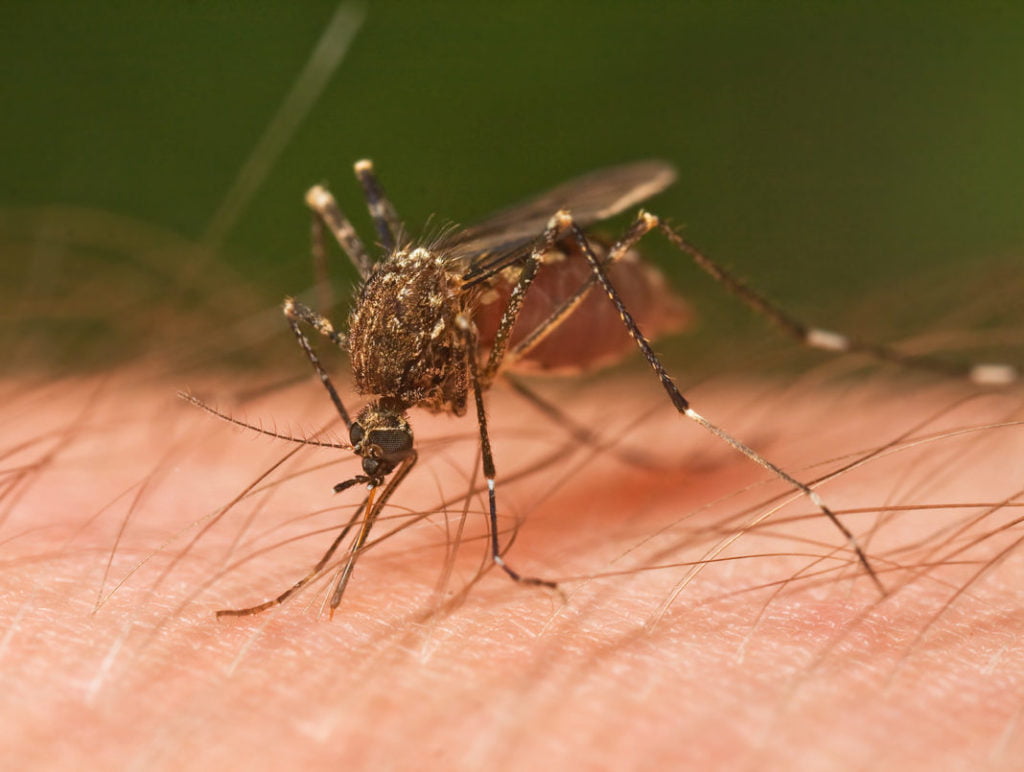“If you think you are too small to make a difference, try sleeping with a mosquito” – Dalai Lama
Zzzt! And there it is…the sound you dread the most when you’ve just settled down for a good night’s sleep!
Zzzt! and there it goes again!
What is this tiny insect that strikes dread into the hearts of the mighty?
It’s the pesky mosquito!
Did you know?
Mosquitoes have been around since the Jurassic period. That makes them about 210 million years old. They’ve been mentioned throughout history, including in the works of Aristotle around 300 B.C. and in writings by Sidonius Apollinaris in 467 B.C.
Mosquito is Spanish for “little fly”.
The buzzing sound that you hear is made by the beating of the mosquitoes wings. The wings of both males and females make a buzzing sound. Females make a higher pitched sound than males. Most people never hear the male mosquito because it doesn’t bite.
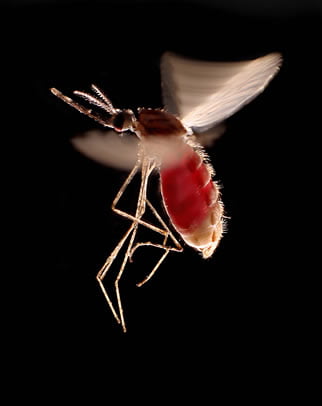
Only female mosquitoes bite. They are attracted by several things, including heat (infrared light), light, perspiration, body odor, lactic acid and carbon dioxide. The female lands on your skin and sticks her proboscis into you (the proboscis is very sharp and thin, so you may not feel it going in). Her saliva contains proteins (anticoagulants) that prevent your blood from clotting. She sucks your blood into her abdomen. If she is disturbed, she will fly away. Otherwise, she will remain until she has a full abdomen.
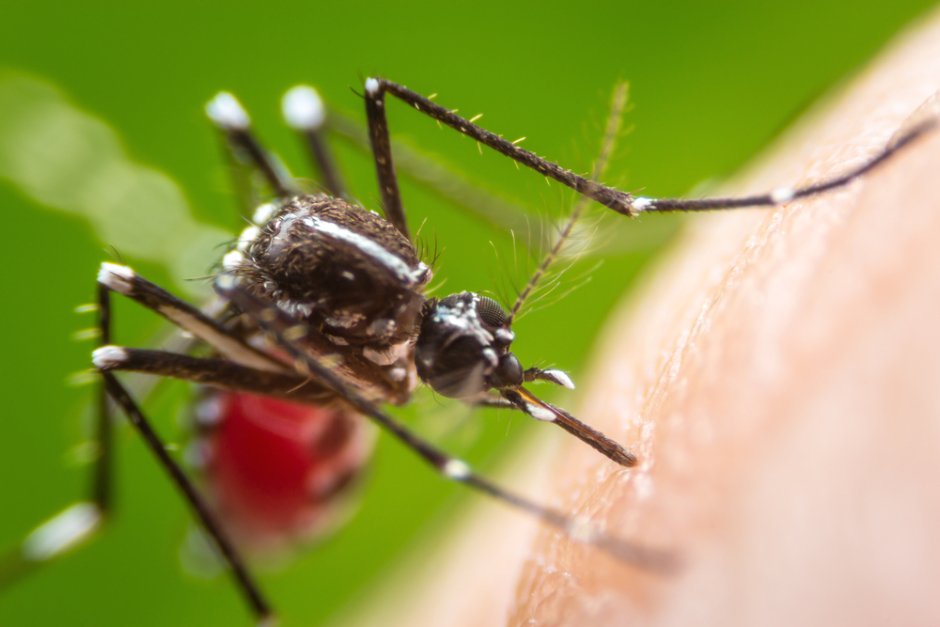
The bumps from mosquito bites are caused by saliva. After she has bitten you, some saliva remains in the wound. The proteins from the saliva evoke an immune response from your body. The area swells (the bump around the bite area is called a wheal), and you itch, a response provoked by the saliva which acts as an anticoagulant. Our body’s natural reaction towards an anticoagulant is to create histamines and send them to the affected area. It is the histamines which cause the bite to itch. It’s not the mosquito that has caused both the swelling and the itching but your immune system! The vicious cycle is the more you scratch and itch at a mosquito bite the more histamines your body sends to the area.
There are many more facts about mosquitoes but what you really want to know is how to not get bitten!
We can’t guarantee that you won’t ever get bitten while on holiday in a hot country, but we can give you some hints and tips on how to minimise the risk.
Keep them away from you.
Use a good quality insect repellant
DEET
DEET is the preferred choice. DEET is widely considered the most effective broad spectrum repellent against mosquito bites. Research and significant clinical experience has concluded there is a low risk of adverse effects when DEET is applied in accordance with manufacturer instructions.
DEET is available in different concentrations and the duration of protection varies depending on the given concentration: 20% DEET between 1 to 3 hours, 30% DEET up to 6 hours, 50% DEET up to 12 hours. Duration of protection does not increase with concentrations above 50% DEET.
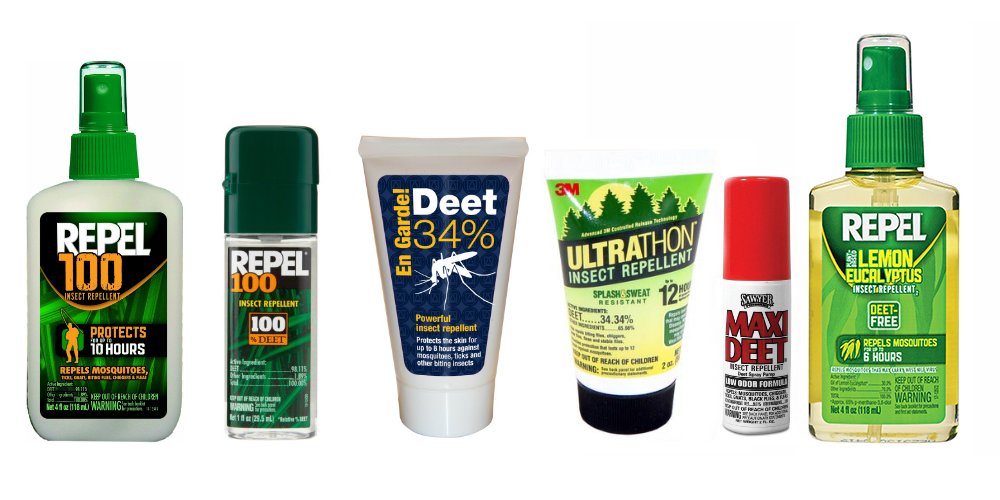
Lemon Eucalyptus
Lemon Eucalyptus 30% gives protection similar to 30% DEET but it is reported to provide a shorter period of protection than DEET.
Clothing
Mosquitoes cannot bite through loose clothing. Covering up with clothing reduces the amount of skin that can be bitten i.e. high necked clothing with long sleeves and trousers or long skirts. Clothing can be thin, loose and light weight in hot environments. Exposed areas of skin should be covered with an insect repellent that contains no less than 20% DEET or suitable alternative.
Mosquito Nets
If sleeping or resting in unscreened accommodation day or night, or sleeping outdoors, insecticide-treated mosquito nets should be used. Nets are more effective if treated with insecticide. The nets should be free of tears.
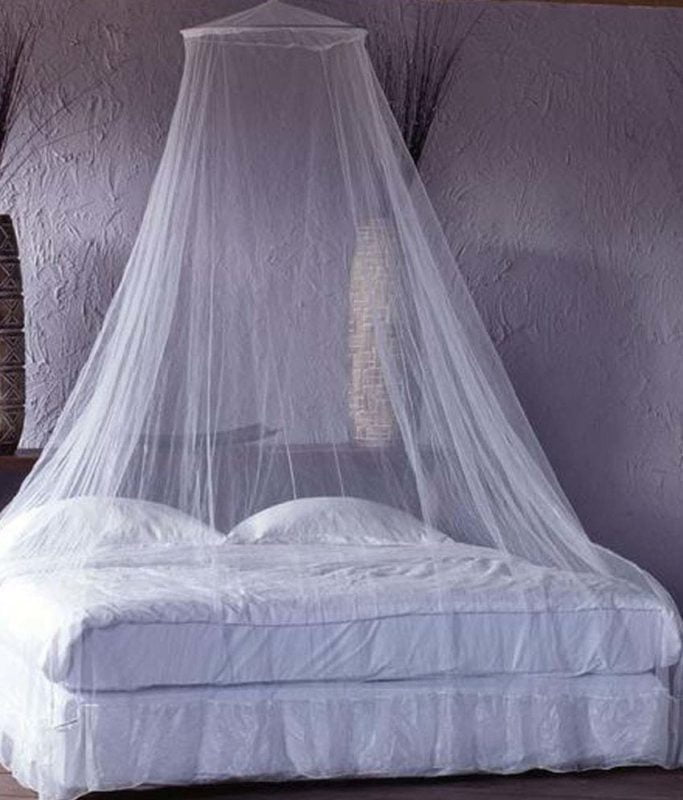
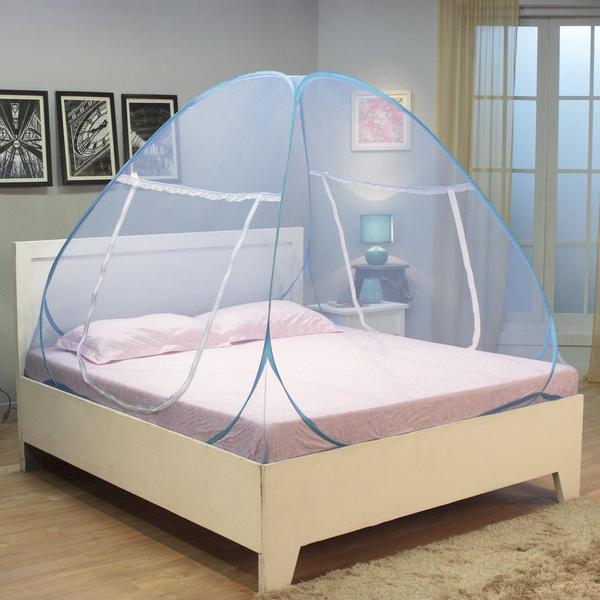
Fallacies
There are a number of measures cited as protective against mosquito bites which are unreliable including the following:
Tea Tree Oil – there is no evidence to suggest tea tree oil is effective at repelling mosquitoes.
Buzzers – (emitting high frequency sound waves) are ineffective as mosquito repellents. Companies selling them have been prosecuted and fined under the UK Trades Descriptions Act and they should not be used.
Vitamin B1 and Vitamin B12 – there is no evidence that these repel mosquitoes.
Garlic and yeast extract (Marmite)– there is no evidence that these repel mosquitoes when taken orally (or topically!).
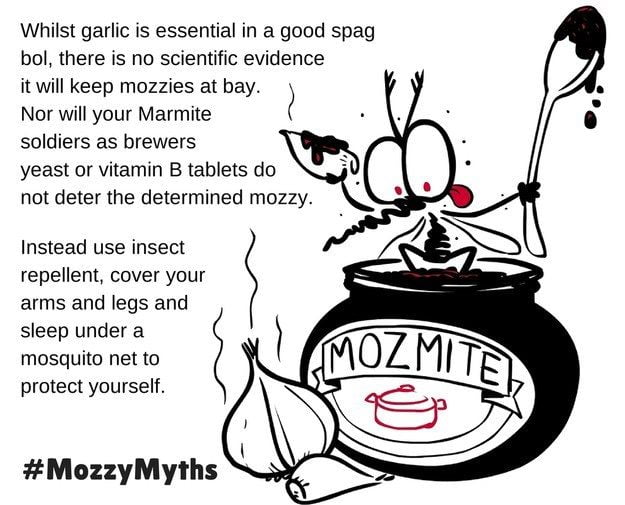
How to treat mosquito bites
To treat mosquito bites, you should wash them with mild soap and water. Try to avoid scratching the bite area, even though it itches. Some anti-itch medicines such as Calamine lotion or over-the-counter cortisone creams may relieve the itching. Typically, you do not need to seek medical attention (unless you feel dizzy or nauseated, which may indicate a severe allergic reaction to the bite).
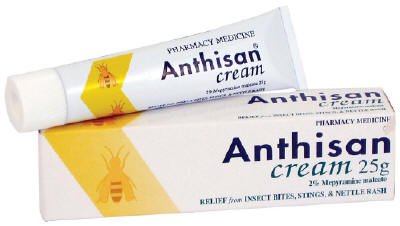
There are also some natural remedies for mosquito bites which can help reduce redness, swelling and help stop that infamous itching.
Home Remedies for Mosquito Bites
Toothpaste is a great treatment to help fight the annoying itch that possesses you after a mosquito bite. The menthol flavour from the toothpaste acts as a cooling agent keeping your mind distracted from the urge to scratch. To add to this, the astringency characteristic of toothpaste will help reduce swelling by eliminating the fluid build-up.
Honey is a natural antibiotic. Apply some honey (preferably fresh) to the bite. Honey is also a great way to treat mosquito bites that you have scratched open.
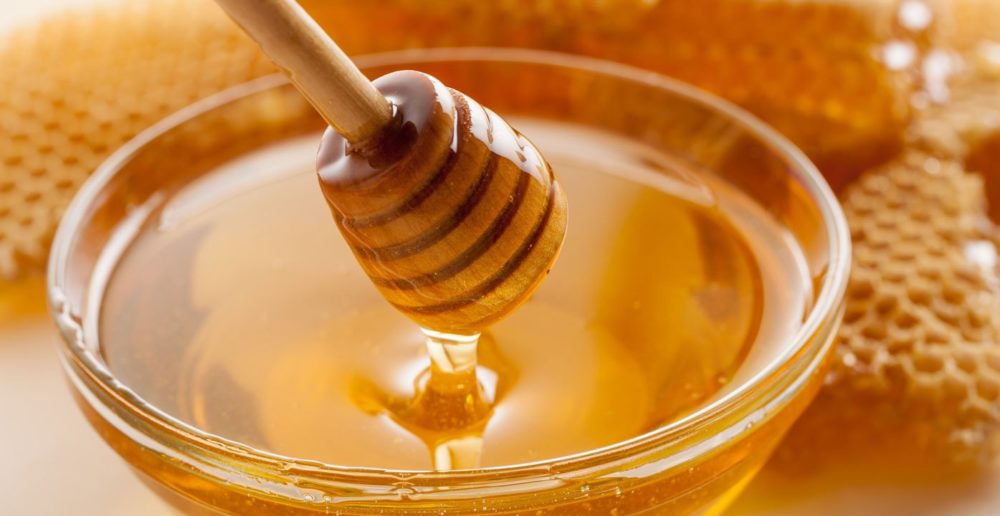
Banana Peel – It may sound strange but, banana peel is another great way to treat a mosquito bite. This is due to the natural oils found within the banana skin. For this natural remedy simply rub the banana peel, flesh side down, on your mosquito bite and relax as the irritating itch fades away.
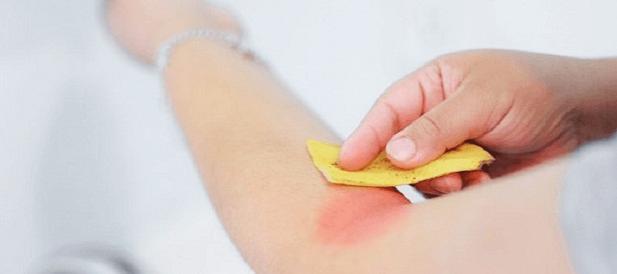
Vapour Rub -Not only can vapour rub help with a blocked nose but it has also been proven to reduce itch from mosquito bites for some people. Much like toothpaste, this is mainly due to the menthol based ingredients found in this product, mixed with the camphor oil.
Ice – Just like wasp and bee stings, ice is a great way to treat a mosquito bite. Take either an ice pack or a bag of frozen peas and place it on the mosquito bite. The cold temperature will help cool the area, reducing the redness and keeping the itching at bay.
Aloe Vera is a fantastic, natural, antiseptic agent? That’s what makes it a good natural remedy for mosquito bites. The vitamins and minerals found in aloe vera will help to reduce the pain, swelling and itching. On top of that it will also help the bite heal faster.
Either fresh aloe vera or aloe vera gel works perfectly for this home remedy. Beforehand make sure it is at a cold temperature before you apply it to your skin, simply leaving it in the fridge for 10 minutes usually does the trick. All you need to do is rub the gel (this can be extracted from a fresh aloe vera plant by cutting a meaty portion off and squeezing) to the mosquito bite and let the aloe vera do its magic.
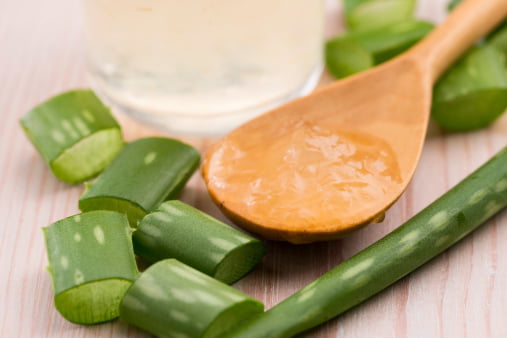
Create an X – this is more of a temporary fix rather than a solution. Simply make an X on top of the mosquito bite using your fingernail. Don’t press too hard as you don’t want to pierce the skin, just apply enough pressure to make a dent. This will help stop the itching however it will return when the X fades away.
You may not be able to prevent mosquito bites entirely, but you can lower your chances of getting bitten.
Have a happy, bite free holiday!
Sources: fitfortravel/Rentokil
This article was first published on 18 July 2018.

